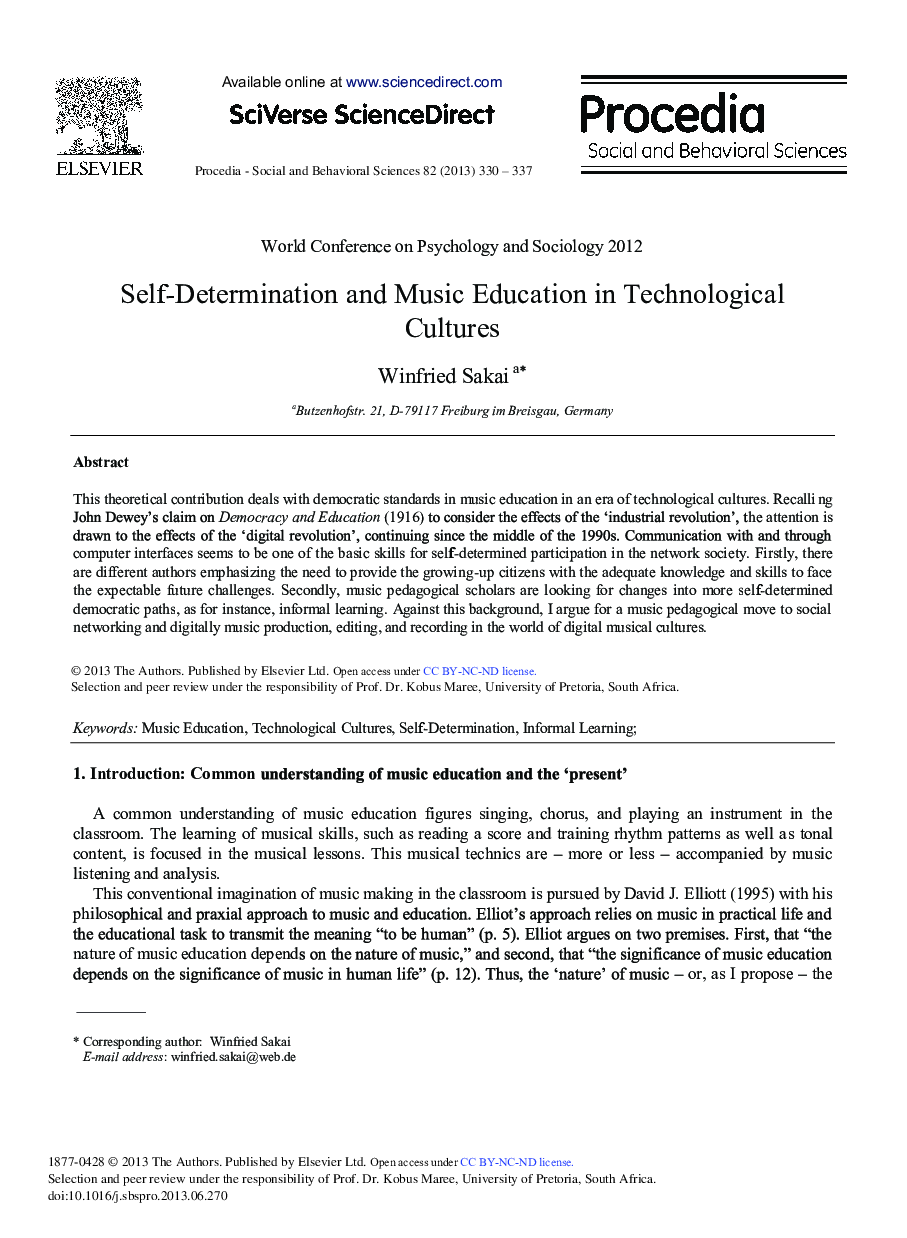| Article ID | Journal | Published Year | Pages | File Type |
|---|---|---|---|---|
| 1119007 | Procedia - Social and Behavioral Sciences | 2013 | 8 Pages |
This theoretical contribution deals with democratic standards in music education in an era of technological cultures. Recalli ng John Dewey‘s claim on Democracy and Education (1916) to consider the effects of the ‘industrial revolution‘, the attention is drawn to the effects of the ‘digital revolution‘, continuing since the middle of the 1990s. Communication with and through computer interfaces seems to be one of the basic skills for self-determined participation in the network society. Firstly, there are different authors emphasizing the need to provide the growing-up citizens with the adequate knowledge and skills to face the expectable future challenges. Secondly, music pedagogical scholars are looking for changes into more self-determined democratic paths, as for instance, informal learning. Against this background, I argue for a music pedagogical move to social networking and digitally music production, editing, and recording in the world of digital musical cultures.
